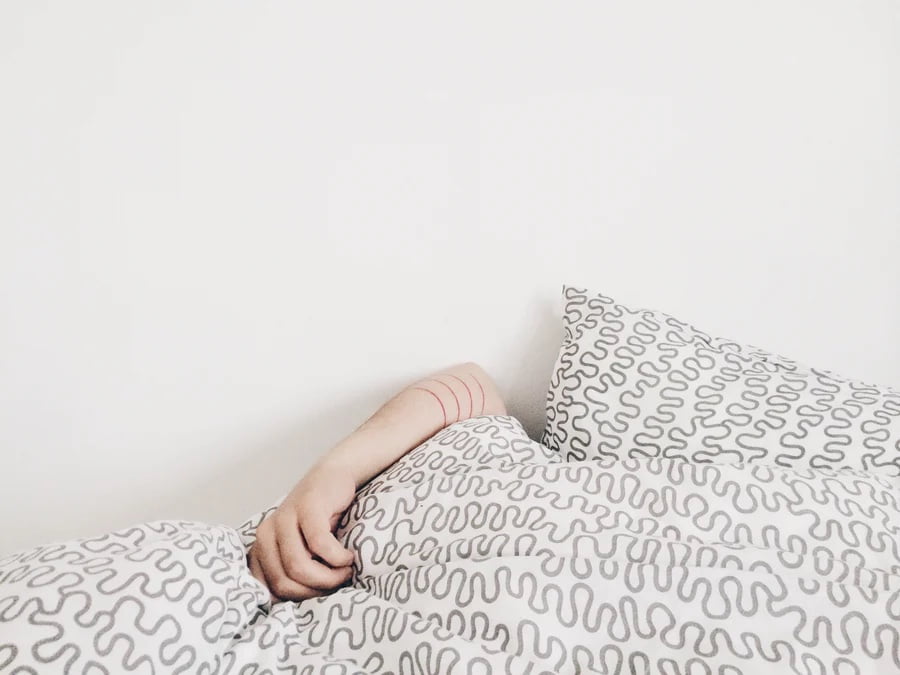
Are you suffering from sleep and weight issues? Are you wondering if the two are linked?
A number of studies have shown an association between sleep duration and quality with obesity, diabetes, hypertension, and cardiovascular disease risk.
Sleep loss is one of the risk factors for obesity. The problem is that sleep loss leads to weight gain, but being overweight also causes sleep issues thus leading to a vicious cycle.
Sleep loss affects a number of our hormones and causes imbalance in their levels. Leptin and ghrelin are the hormones that regulate our appetite, and poor sleep alters their production leading to increased feelings of hunger and reduced feelings of satiety. This can lead to weight gain. Poor sleep also affects our insulin levels, causing blood sugar disruptions which have been linked to increased risk of obesity and diabetes. Sleep deprivation is also associated with growth hormone deficiency and high levels of cortisol, both of which have been linked to obesity. Lastly, lack of sleep can disrupt the way we metabolise our food whilst the physical effects of carrying excess weight impacts sleep quality.
As well as causing disruptions on a physical level, poor sleep has also been shown to encourage our intake of foods high in calories. As poor sleep causes fatigue, it also means that we exercise less. This combination of high-calories food with less exercise increases the risk of weight gain, obesity and diabetes.
However, ensuring a good sleep hygiene can assist people who are overweight or obese to improve their sleep and thus their overall health. Sleep hygiene involves a number of things to create the ideal conditions for sleep.
How to improve your sleep hygiene
Here are a few environmental suggestions:
- Ensure the room is comfortable and around 18 degrees. Too hot or too cold a room can impact sleep.
- Ensure the room is dark (blackout blinds, eye mask). Darkness triggers the release of melatonin, which allows good sleep. Exposure to natural light during the day also support the production of melatonin so be sure to go for a walk everyday – even if short – to get a good supply.
- Choose a comfortable mattress, providing sufficient support.
- Turn-off all blue light devices at least 30-60 minutes before bedtime. This includes TV, tablets, computers or smart phones. And keep them out of the bedroom.
- Ensure your bedroom is quiet. Opt for earplugs if needed.
Sleep and food
It is unknown whether it is sleep that affects dietary intakes or dietary intakes that affect sleep but choosing the right food is an important way to improve the duration and quality of our sleep. You can refer to our other blog “Can foods improve our sleep?” for ways to improve your sleep via foods. In addition:
- Avoid large and rich meals close to bedtime, try to have at least a 3-hour gap between food and bedtime. Also, avoid going to bed hungry as this may distract your sleep.
- Avoid caffeinated drinks for 6 hours before bed.
- Avoid alcohol before bed: alcohol blocks REM sleep, the most restorative type of sleep and can disrupt your circadian rhythm.
- Avoid naps during the day.
- Practice relaxation each day before bed, using a tape or an app such as HEADSPACE.
- Have a regular bedtime – try to go to bed and wake up at the same time every day.
- Try muscle relaxation to help distress and unwind i.e a warm bath or a massage.
- Keep your feet and hands warm, wear warm socks/gloves in bed.
- Sip on a camomile, lavender or valerian root tea.
- Listen to calm music.
If you are suffering from sleep or weight issues or any of the symptoms mentioned in this blog, we recommend you consult with a Nutritional Therapist. You can get in touch with me here or call me on 07788 444 199.
References
St-Onge, M-P. Mikic, A & Pietrolungo, C.E. (2016), “Effects of Diet on Sleep Quality”, Advances in Nutrition, 7 (5), pp.938–949.
The Sleep Foundation, 2021: https://www.sleepfoundation.org/physical-health/obesity-and-sleep
Rossi, M. (2019). ‘Eat yourself healthy: an easy-to-digest guide to health and happiness from the inside out’, Penguin.